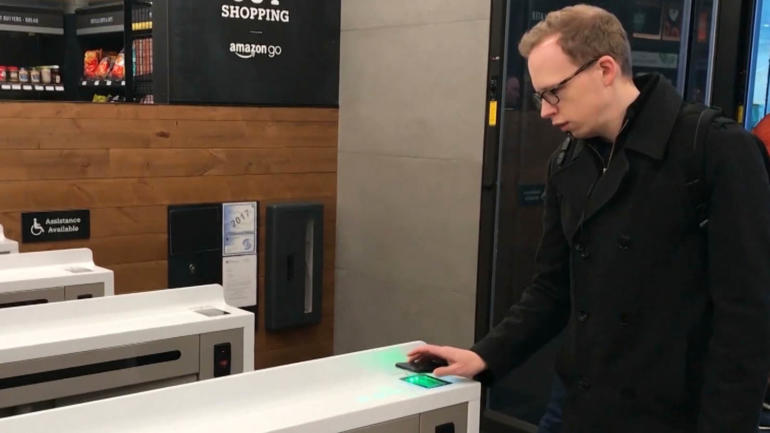A growing number of businesses worldwide are going cashless because the transactions are more efficient and safe.
But in the U.S., some cities are pushing back, saying cashless stores unintentionally discriminate.
CGTN’s Karina Huber reports from Philadelphia, which has taken the lead in this backlash.
Philadelphia – like many U.S. cities – has stores that don’t accept cash. Fast-casual restaurant chain, Sweetgreen, is an example. It’s part of a global trend that is growing.
Many businesses say cashless stores make transactions faster and safer.
But as of July, Sweetgreen – along with most other stores and restaurants in Philadelphia – will have to let customers pay with legal tender. If not, they could face a fine of up to $2000.
That’s because Philadelphia just became the first major U.S. city to ban cashless establishments.
City Councilman Bill Greenlee co-sponsored the bill.
“I think it’s a form of discrimination. Some people don’t have the same access to buy a basic product that others do,” he said.
The mayor’s office says 26 percent of Philadelphia residents live below the poverty line. Some – mainly minorities and immigrants – don’t have bank accounts and don’t have access to credit.
The ban comes as Amazon Go, a cashless store chain, expressed interest in opening a branch in Philadelphia.
Amid mounting criticism from opponents, Amazon Go has reportedly reversed course and decided to accept cash at its stores.
Amazon may have caved to pressure but Sylvie Gallier Howard, First Deputy Commerce Director at the Philadelphia Department of Commerce, is concerned the ban sends an anti-business message.
“If lots of businesses are moving to this model and decide we’re going to close, we’re not going to open more, that becomes a concern because then we start to lose jobs,” she said.
“I would say, what message are we sending that somebody can’t go in to get a cup of coffee because they don’t have a credit card. I think that’s a worse message,” said Greenlee.
Both do agree on one thing: the ban is meant to be temporary.
“The mayor hopes that this bill will be a pause while we deal with the issue of access for the underbanked and unbanked to this business model,” said Gallier Howard.
As the rest of the world marches towards cashless stores, other U.S. cities including New York and San Francisco are considering similar bans.
 CGTN America
CGTN America

